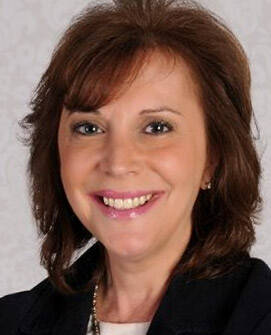Jordan Becker has close-cropped dark hair, a trim goatee and bulging biceps from lifting weights daily at the gym. Becker did not always look this way. A photograph of Becker at age 4 shows a smiling little girl with ringlet curls in a frilly dress. “My mother had to pay me to wear that dress,” Jordan says.
Just over a year ago, when he was still in the Army National Guard as a woman, Becker began taking testosterone and had his breasts surgically removed. He is one of an estimated 1.3 million Americans who are transgender—people who believe their spirit and their psyche don’t correspond with their anatomy.
For churches that have spent the past several decades struggling with how best to minister to gay and lesbian people and respond to calls for same-sex marriage, transgender people represent the next moral frontier. Those seeking to transition to another sex also pose complex pastoral questions. They frequently say they knew from an early age that their body didn’t fit the gender they were born with. If God created all beings, how could God have gotten it wrong, they ask.
“I lay in bed at night asking, ‘Why does God hate me?’” Jordan once told me. A suicide attempt followed. How does that compute with a loving, merciful God?
Emboldened by shows like Amazon’s “Transparent” and Netflix’s “Orange Is the New Black,” which feature transgender characters, Becker and others increasingly are speaking out publicly about their lives. They include a number of transgender Protestant ministers as well. Recently, a Carmelite order of nuns in Canada accepted a hermaphrodite woman born with physical characteristics of both sexes. She is now taking hormones to become a woman.
I’ll leave the theological questions to those more expert. But perhaps any discussion of transgender realities can begin with the question of what truly constitutes our personhood. In Catholic teaching, the difference matters a lot. “The harmony of the couple and of society,” says the Catechism of the Catholic Church, “depends in part on the way in which the complementarity, needs, and mutual support between the sexes are lived out.” Yet many are asking whether our anatomy is really such a defining factor. As Becker says: “I was the same person the day before I started my transition as the day after. It doesn’t matter what’s in my pants or under my shirt.”
I am moving along my own learning curve about transgender individuals. Several months ago, I reported a story on Chicago’s efforts to curb the spread of H.I.V. among young gay men. At one clinic, a person with a man’s haircut wearing men’s clothes came for testing. To me, Sam was obviously a woman.
“Sam identifies as a male,” a hospital worker told me later.
“Yes, but what is Sam anatomically?” I persisted.
“What difference does it make?” the worker said. “It’s what Sam says that matters.”
Later, covering a different story, I met a Catholic sister from Kentucky who told me she has ministered to transgender individuals since the 1990s. The sister from Kentucky says she has two messages for transgender people: “God loves you, and God wants you to be who you are.”
Then I began working out at the gym alongside Becker, who told me: “It’s like a light bulb went off in my head. God doesn’t hate me. God is using me for something special.”
The theologian James D. Whitehead and his wife Evelyn Eaton Whitehead, a developmental psychologist, have written extensively about human sexuality. Transgender individuals, they write, test our concept of normal. “But…normalcy carries little weight in biblical stories that tell of transformations that unseat our confident grasp of reality. Paradox and miracles are the stuff of Scripture. Does not the odyssey of a transgender person fit this narrative of grace?”
Becker has had to give up his dream of a military career; the service will accept gay but not transgender people. Still, he lives with hope. Sexuality is perhaps far more complex and mysterious than we have yet imagined. I look to the poetry of Gerard Manley Hopkins, S.J., who marveled at the beauty in the extravagant and unconventional. “Glory be to God for dappled things...all things counter, original, spare, strange,” Hopkins wrote. Many are now asking: will the church one day say the same?









Thank you so much for this reflection! For more on the sister in Kentucky mentioned above, readers might be interested in my profile of her in Al Jazeera America from earlier this year.